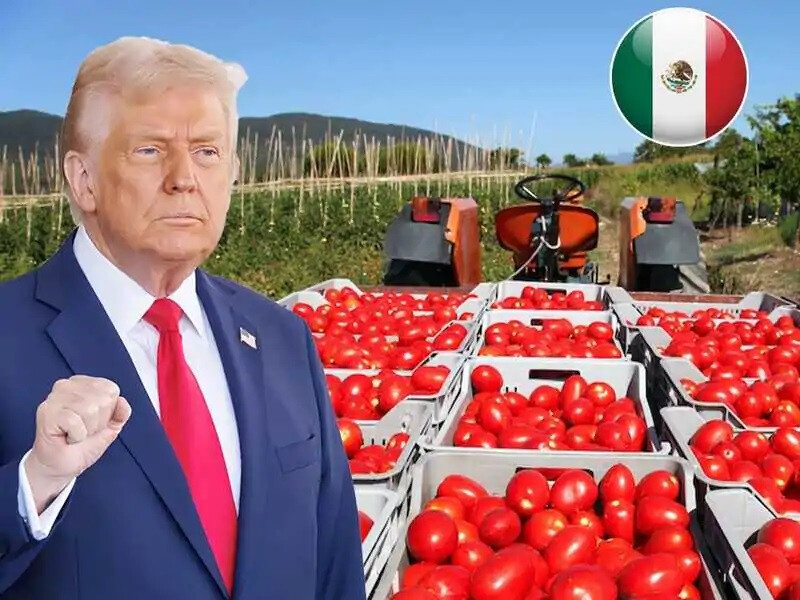
WASHINGTON D.C. - The White House has officially declared its intention to withdraw from a long-standing duty-free import agreement with Mexico concerning tomatoes, a move poised to reshape the agricultural trade landscape between the two nations. The announcement, made on April 14th, signals the end of an era for Mexican tomato exports to the United States and is set to impose a tariff of approximately 20.91% on these imports starting in mid-July.
The decision comes at the behest of the International Trade Administration (ITA), a division of the U.S. Department of Commerce. In a formal statement, the ITA articulated that the existing agreement has fallen short of its intended purpose: safeguarding American tomato growers from what they perceive as unfairly priced competition from south of the border. "The current agreement is not adequately protecting domestic growers in the United States from unfairly priced Mexican imports," the ITA asserted, highlighting the significant volume of feedback received advocating for the agreement's termination.
The Department of Commerce expressed optimism that the withdrawal would usher in a more equitable competitive arena for domestic tomato producers. This sentiment echoes the long-standing grievances of American farmers who have argued that the influx of cheaper Mexican tomatoes has depressed prices and eroded their market share.
Data from the U.S. Department of Agriculture (USDA) underscores the significant role Mexico plays in the American tomato market. Mexican tomatoes constitute a substantial portion of U.S. imports, ranging from 76% to an overwhelming 98% depending on the season and source. This dominance highlights the deep integration of the two countries' agricultural supply chains. A vast majority of Mexico's tomato exports are destined for the American market, making the U.S. a critical trading partner.
World Bank statistics from 2023 further illustrate the scale of this trade relationship. In that year alone, Mexico exported approximately 1.8 million metric tons of tomatoes to the United States, valued at an impressive $2.8 billion. This substantial figure underscores the potential economic ramifications of the impending tariffs, not only for Mexican agricultural producers but also for the American food industry, which has come to rely heavily on this supply.
The implications of this policy shift are far-reaching. Mexican tomato growers are bracing for a significant increase in costs associated with exporting to their primary market. This could lead to reduced profitability, potential job losses within the Mexican agricultural sector, and a reevaluation of their export strategies.
On the American side, the imposition of tariffs is expected to lead to higher prices for consumers. Tomatoes are a staple in American diets, and an increase in import costs will likely be passed down through the supply chain, affecting grocery store prices and the cost of ingredients for restaurants and food manufacturers.
Furthermore, the move could spark retaliatory measures from Mexico. Agricultural trade between the two countries is extensive, and any disruption on this scale could lead to a tit-for-tat scenario, impacting other sectors of the economy. While the U.S. aims to protect its domestic industry, it risks alienating a key trading partner and potentially instigating a broader trade dispute.
Industry analysts predict a period of adjustment as the new tariffs take effect. American buyers will need to decide whether to absorb the increased costs, seek alternative sources of tomatoes (though the dominance of Mexican imports suggests limited options), or reduce their reliance on fresh tomatoes during certain times of the year. Domestic growers, while potentially benefiting from reduced competition, will need to ramp up production to meet the demand currently filled by Mexican imports.
The withdrawal from the duty-free agreement marks a significant departure from decades of agricultural trade policy between the U.S. and Mexico. It reflects a growing concern within the U.S. regarding fair trade practices and the protection of domestic industries. However, the long-term consequences for both economies remain uncertain, and stakeholders on both sides of the border are closely watching how this development will unfold. The impact on consumers, farmers, and the broader food industry will be a key indicator of the success or failure of this contentious policy shift.
[Copyright (c) Global Economic Times. All Rights Reserved.]



























